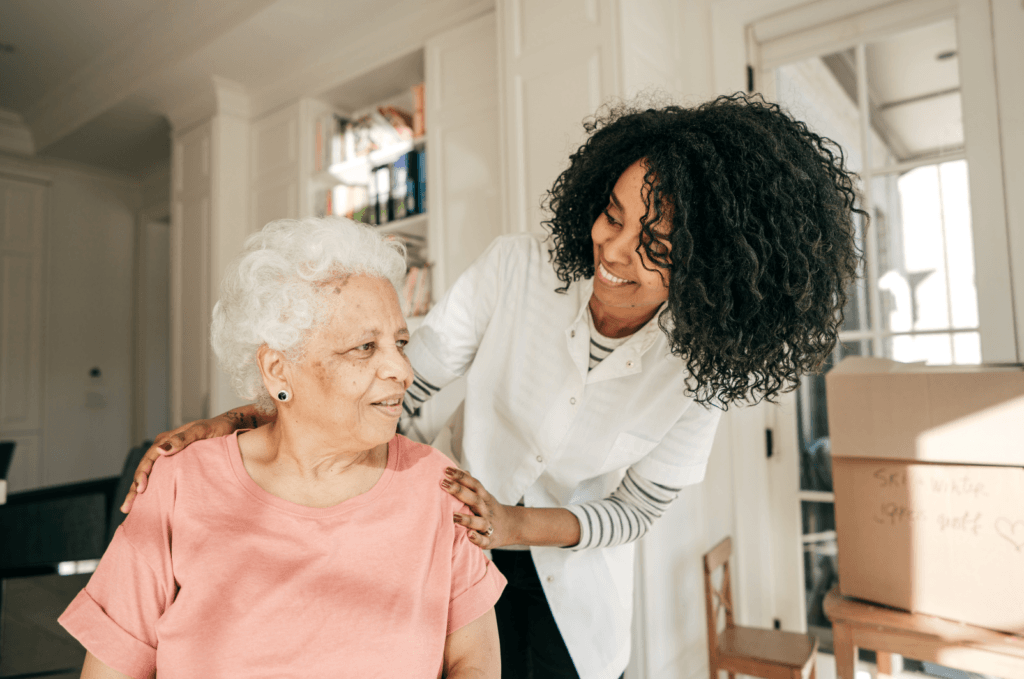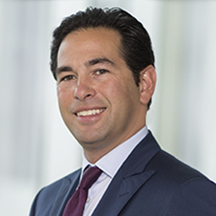

Alzheimer’s FAQs (3/3): Tips for supporting a loved one with cognitive decline
by PNI Experts
An estimated 6.2 million Americans age 65 and older are living with Alzheimer’s dementia—a figure expected to triple by 2050. In this three-part blog series, Scott Kaiser, MD, and Mihae Kim, AGNP-BC, answer the frequently asked questions about confronting Alzheimer’s disease.
When supporting people with cognitive impairment, it can be helpful to remember that memory problems, personality changes, and other functional limitations are not intentional. A little patience can go a long way…and when it comes to dementia we could all use a little more empathy.

An empathic approach – underlying much of the art and science of communicating effectively with people with dementia – starts with attempting to see things through someone else’s eyes, even when things may be a bit distorted from our reality.
There are wonderful tip sheets and other resources available through local advocacy groups and online. While hearing the same story, repeated questions, and other things stemming from short-term memory loss can be extremely frustrating, such resources encourage us to exercise patience while managing our expectations.
Such guides might suggest avoiding arguing, confronting, reminding someone they’ve forgotten, or otherwise trying to “prove” a point through reason.
Is picture-taking for cataloguing the current time helpful or upsetting?
We often encourage individuals/families to use compensatory strategies; for example, using pictures, logs, lists, calendars, digital assistants, apps, alarm clocks etc., to help navigate life with memory loss. Again, this need not be used to “confront” one’s reality but rather helpful and supportive aids or even “reminiscence therapy.”
Can you talk about the benefits of socialization?
Numerous studies have established loneliness and social isolation as risk factors for dementia and worsening cognitive decline. Thankfully, by facilitating increased social connectivity, we can address these modifiable risk factors and improve cognition, mood, and overall health. Programs that offer opportunities for social activity—along with physical exercise and cognitive engagement—may be one of the most highly impactful, and often underappreciated, means by which we can improve the health and well-being of those living with dementia.
How can homecare agencies assist?
When it comes to dementia and memory changes, often the impacts are greatest for the family, friends, and others surrounding them than for the “patient” themselves. Qualified professional caregivers and care companions can provide much-needed support. Such support may play an essential role in maintaining the safety of someone with dementia or may merely provide a bit of respite for their loved ones.
Paid caregivers may provide assistance with daily tasks (helping with medication management, meal preparation, companionship, transportation assistance, picking up prescriptions, and getting groceries), or even provide social connection, physical exercise, cognitive engagement, and other beneficial stimulation.
Original content was written for the Santa Monica Star newspaper.
More information: 310-582-7641
About Dr. Scott Kaiser

Scott Kaiser, MD, a board-certified family physician, and geriatrician, is the Director of Geriatric Cognitive Health and provides specialty geriatric medical consultations at the Pacific Brain Health Center. Focused on the needs of older patients, he works with his colleagues to provide an integrated and holistic approach to their cognitive challenges. With this “whole person” approach, Dr. Kaiser works to connect patients and their families with a broad range of resources to support their overall health and well-being.
About Mihae Kim, AGNP-BC

Mihae Kim, AGNP-BC, is an Adult Gerontology Nurse Practitioner specializing in the care of Alzheimer’s disease and other dementias. As a Dementia Care Nurse Practitioner at Pacific Brain Health Center, Mihae works closely with physicians and other multidisciplinary team members to provide a collaborative approach to managing these neurodegenerative disorders. Mihae helps patients and their families navigate their difficult journey by creating mutual goals and roadmaps through clinical evaluation, as well as providing guidance with medical, behavioral and psychosocial recommendations.
Related Links:
About the Author
PNI Experts
Last updated: April 18th, 2022
